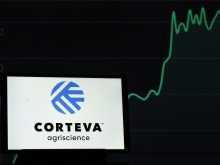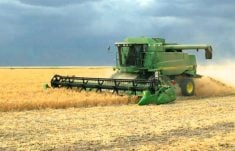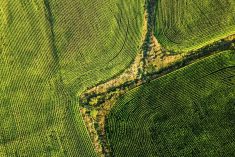HAMBURG (Reuters) – Saudi Arabia is the latest in a string of countries this week to buy or tender for wheat to take advantage of its bargain price.
The Saudi state grains authority GSFMO has issued an international tender to purchase 660,000 tonnes of wheat, European traders said on Thursday.
The recent fall in corn and wheat prices to around three-and-half-year lows has encouraged major importers to buy supplies on a large scale this week.
On Wednesday, Algeria bought about 500,000 tonnes of wheat while Iraq bought 350,000 tonnes of hard wheat.
Read Also

Association of Equipment Manufacturers sets up lobby in Ottawa
The Association of Equipment Manufacturers, an organization representing North America’s agriculture and construction equipment makers, is setting up an office in Ottawa.
Ethiopia also tendered for 70,000 tonnes of wheat on Thursday, when Japan also bought 99,052 tonnes and Taiwan bought 73,400 tonnes of U.S. wheat.
The tender deadline is Friday, Jan. 24, and offers must remain valid up to Monday, Jan. 27, traders said.
The Saudi tender sought 550,000 tonnes of hard wheat with a minimum 12.5 percent protein and 110,000 tonnes soft wheat with 11 percent protein, traders said.
Some 330,000 tonnes of the two types was sought for shipment to the port of Jeddah and 330,000 tonnes to the port of Dammam.
Shipments of 55,000 tonnes were sought for each port in stages from Apr. 1 to June 30.
In its last reported tender on Nov. 4, Saudi Arabia bought 720,000 tonnes of hard wheat.
Saudi Arabia has become a major importer of both hard and soft wheat since abandoning plans for self-sufficiency in wheat in 2008 as farming in the desert absorbed huge volumes of precious water supplies.
It aims to steadily reduce agriculture and plans to be completely reliant on imports by 2016 to save water. (Reporting by Michael Hogan, editing by William Hardy)














